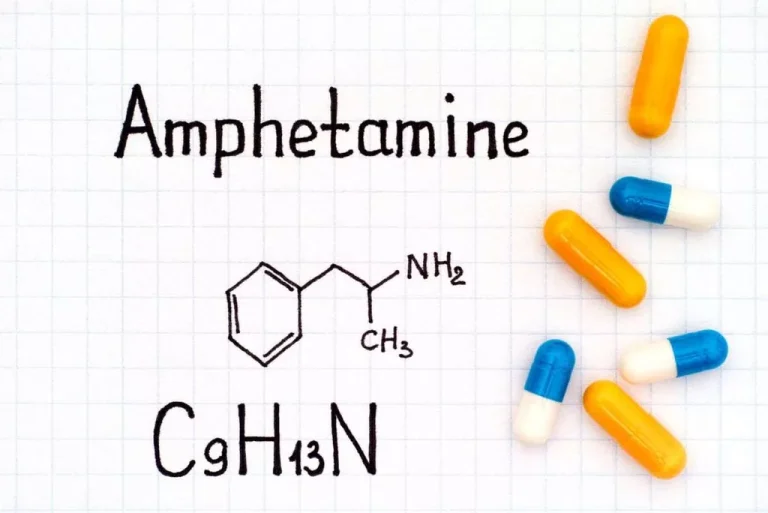
Self-help books or apps are less likely tohelp you successfully quit if you are addicted to alcohol. Dr. Kevin Wandler of Advanced Recovery Systems describes the potentially life-threatening withdrawal symptoms that can occur when a person quits drinkingalcohol https://ecosoberhouse.com/ cold turkey. Your relationships and friendships are likely to change as you overcome your addiction. However, it can also take time and effort for trust to be re-established if you have hurt friends or family while you were actively involved in your addiction.

What is Inpatient Alcohol Rehabilitation?

Drinking lots of fluids, especially fluids with electrolytes, will help address dehydration and nausea and improve your overall health and ability to undergo withdrawal. Sodium, calcium, potassium and magnesium are common electrolytes in sports drinks. Almost everyone who struggles to quit drinking requires some form of peer support. As with any goal, quitting alcohol iseasier if you have friends and family members supporting you. They can encourage you to stay sober and help you findother healthy ways to have fun.
What vitamins and supplements help with alcohol withdrawal?
Other people battling an addiction benefit from the challenges and support offered by group therapy. Peer support groups, which are not led by trained professionals, may benefit some individuals as part of the recovery process. Some facilities may advise not staying in constant contact with friends and relatives during inpatient treatment, significantly if they may trigger relapses. However, other facilities allow and encourage family members to play an active role in the recovery process.
Tips for Overcoming an Addiction
Sustaining behavior change until new patterns become ingrained is difficult under the best of circumstances. The shifts in thinking and behavior are critical because they lay the groundwork for changes in brain circuity that gradually help restore self-control and restore the capacity to respond to normal rewards. People can learn to resist or outsmart the cravings until they become manageable. There are strategies of distraction and action people can learn to keep them from interrupting recovery. Another is to carefully plan days so that they are filled with healthy, absorbing activities that give little time for rumination to run wild.
You might also hold onto a nonalcoholic drink instead, ask a friend to support you in difficult situations or simply exit early if temptation gets too strong, the NIAAA suggests. You’ll get a 100% custom plan, then use daily texts to track your progress and help you stay on target. You aren’t to blame for your loved one’s drinking problem and you can’t make them change. Research the kinds of treatment that are available and discuss these options with your friend or family member.
Avoid Relapse
- If you’re thinking about suicide, are worried about a friend or loved one, or would like emotional support, the Lifeline network is available 24/7 across the United States.
- For best results from these programs and groups for how to quit drinking, one must also be ready to take on a lot of responsibility to avoid situations where the habit can be triggered again.
- As friends and family members become increasingly concerned about their beloved one’s abuse problem, they might gently approach them and try to address the condition.
- At the end of the day, one of the most important tools you have at your disposal is self-compassion.
Such sessions are chaired by a qualified alcohol intervention specialist, a mental health specialist, or a licensed alcohol and drug counselor. According to the National Council on Alcoholism and Drug Dependence (NCADD), a professionally-led intervention brings successful results in 90 percent of all cases. Alcohol withdrawal can be a challenging and potentially dangerous process, requiring careful management and how to overcome alcoholism support. It often raises many questions, especially regarding effective strategies for managing symptoms and ensuring safety. Let’s address some of the most frequently asked questions about alcohol withdrawal, providing insight into different aspects such as medication, home remedies, dietary considerations and more. Like deep breathing, meditation can help you stay balanced and relaxed during your withdrawal.

Exercise, listening to music, getting sufficient rest—all can have a role in taking the focus off cravings. Also known as “alcohol counseling,” behavioral treatments involve working with a health care provider to identify and help change the behaviors that lead to alcohol problems. Information provided on Forbes Health is for educational purposes only. Your health and wellness is unique to you, and the products and services we review may not be right for your circumstances. We do not offer individual medical advice, diagnosis or treatment plans. For personal advice, please consult with a medical professional.
Online Learning Courses
Having a chaotic or disorganized lifestyle can also hinder your recovery. It’s important to develop a structured daily and weekly schedule and stick to it. Depending on the type of dependency, PAWS can last from six months to two years after you stop using drugs or alcohol. Research has found that of the 20.3 million adults in the U.S. who have a substance use disorder, 37.9% also have another type of mental illness. When you consider how to go about giving up alcohol, account for factors like how much you drink and your reasons for drinking.
- A successful intervention must be planned carefully to work as planned.
- Finding out for how long the addiction has been going on will be the first step of assessing the situation and choosing between the intervention programs.
- • Connection—being in touch with others who believe in and support recovery, and actively seeking help from others who have experienced similar difficulties.
- Dr. Streem says that if your goal is to stop drinking altogether, you’re more likely to have success quitting all at once, rather than weaning off alcohol.
- Data show that the programs are helpful for some but not for everyone.
- Then we need more on repeated use, just to feel a the marginal pleasure boost – and, eventually, just to feel “normal.”
- Because recovery involves growth, families need to learn and practice new patterns of interaction.
- Residential rehab involves “checking in” to a residential facility, either a discrete and isolated wing of a larger hospital or health complex or a standalone facility.
In conclusion, while dealing with alcohol cravings isn’t easy, a clear grasp of the role of diet in your battle can provide you with additional tools for your toolbox on your recovery journey. In the journey towards recovery, the right nutrient-rich foods can play a surprising role – they can curb alcohol cravings. Distraction techniques focus on shifting one’s attention away from cravings. This can range from engaging in physical activities, such as jogging or swimming, to intellectual stimulants like reading or solving puzzles. These actions aim to disrupt the obsession with cravings, giving the mind a break and helping maintain recovery efforts. Several studies indicate that these practices not only increase self-control over response to cravings, but can also reshape the neural pathways in the brain.